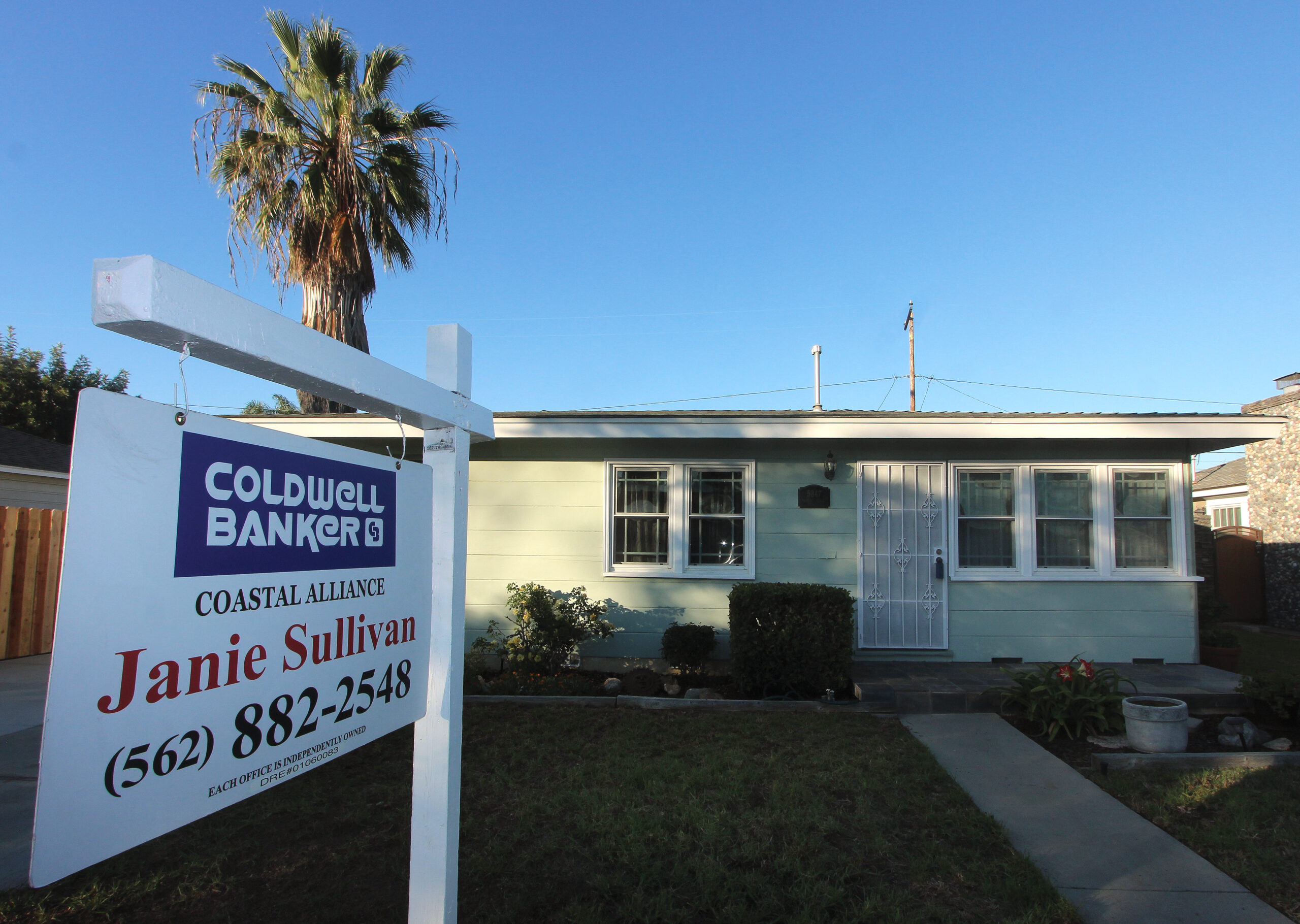
The Long Beach housing market appears to be cooling slightly from its pandemic peak—at least as far as pricing goes. But lenders say interest in home finance is still strong.
“My business has been—it’s been explosive,” said Greg Fox, a regional manager for America’s Home Loans in Long Beach. “It’s probably been the best two years I’ve had in a long time.”
While buyer fatigue and the typical seasonal downturn in home-buying may mean folks face less competition for any given property, Fox and others said it’s still clearly a seller’s market. Low interest rates continue to make home-buying—and refinancing—attractive.
Adam Evans is a loan officer with Long Beach Home Loan who focuses mostly on refinancing. He said that while low interest rates are always a good incentive for people to refinance their homes, the uptick in forbearance plans—in which lenders allow homeowners to temporarily lower or pause payments—during the pandemic has also driven people to rework their mortgages.
“We’re dealing with a lot of people who have had forbearance, and now they’re refinancing out of it,” Evans said. “I have clients that didn’t make a payment for a year on a $300,000 mortgage, and they’ve added $50,000 in forbearance payments.”
While the housing boom of the last two years may, by some metrics, look eerily similar to the market in 2006 and 2007, Evans and Fox both said they don’t believe this is another bubble about to burst.
In addition to the loans themselves being more sound this time around, Evans said, “we kind of learned from that, and what the [Federal Reserve] did—what the government did this time was say, ‘We’re not going to let anyone default.’ So the way the situation was handled was completely different.”
“Am I concerned in terms of the values rising and things like that?” he continued. “For me, it’s more of a bigger economic picture.”
Evans said, the way he sees it, the financial relief that has allowed people to avoid foreclosures has also driven up prices—not just in the housing market, but with inflation more generally.
“The prices in housing, in my opinion, isn’t rising as much by supply and demand,” he said, “as much as it’s rising by the monetary policy that’s been put in place, where we’ve been pushing so much money in the system.”
Fox, though, sees it differently.
“I think that a lot of people jumped into the market who have been sitting on the sidelines,” he said. “As long as there is very, very low inventory, then it’s not a bubble, because there are still consumers. There are still people who want to buy.”
“As long as inventory is low, we’re not going to see a downturn,” Fox said. “That might happen in other places in the country, but this is Southern California.”
That’s not to say, though, that prices will keep skyrocketing on the same trajectory as they have been.
“My personal opinion is: It’s a little crazy. It’s a little absurd,” Fox said of the current market. “But this is California. Everybody wants to be in California. So I don’t think we’re going to see, necessarily, a downturn, per se. I think we just might see some stabilization right now in the markets, as far as pricing of housing. I think we’re going to see sideways movement for a while.”
Of course, interest rates have always been a major factor in demand in the housing market.
While rates have crept up from their mid-pandemic lows, the average of roughly 3% for a 30-year mortgage in early December was still near a historical bottom for the industry. But concerns about rising inflation led the Fed to announce earlier this week that it will raise interest rates three times next year. For Fox and Evans, the key question is: How big will those hikes be?
“I don’t think interest rates are going to be able to rise too much,” Evans said. “There’s a lot of debt—a lot of corporate debt, and I think right now, with monetary policy—the Fed is walking this tightrope. On one end, we’re fighting inflation. On the other end, we’re fighting all this debt that’s been created.”
“If rates go up too high, and all these corporations and people have to service this debt,” he added, then the narrative becomes, “‘We have to let people go. We have to change our business model because rates went up.’ It has a ripple effect that can cause really big damage to the recovery.”
Fox also acknowledged the tricky spot the Fed now finds itself in.
“The government’s kind of damned if they do, damned if they don’t,” Fox said of bringing up interest rates. “In the past, we have seen certain times when there has been a dramatic and violent spike up of interest rates, and when that happens … the real estate market just completely comes to a crashing halt. Refinances die in a day. Things literally just stop until things normalize again.”
“I’m extremely fearful of spikes like that,” he added. “A gradual rise in interest rates—it all depends on what’s happening with inflation, but in the economy, I think everything’s a little bit too sensitive and a little bit too weak for us to see a sharp increase of interest rates. If there’s a slow escalation over time, that’s acceptable.”
In the meantime, though, interest in either getting a mortgage or refinancing has stayed strong—and Fox hopes that will remain the case.
“I hope we have a good, strong 2022,” Fox said. “I’ve been going gangbusters, nonstop, for two years now, and I hope it continues. I really do.”
